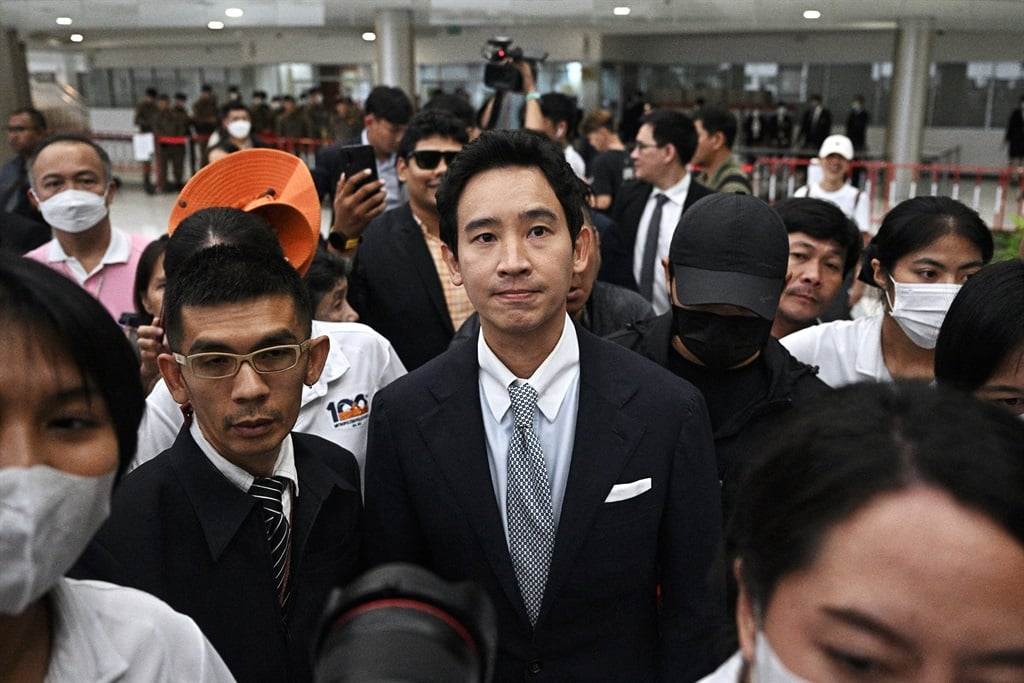Politics tamfitronics

Former Thai prime ministerial candidate and former Move Forward Party (MFP) leader Pita Limjaroenrat (C) leaves the Constitutional Court, after it ruled to ban him from politics for 10 years and dissolve his party over his attempt to reform Thailand’s royal defamation laws, in Bangkok on 7 August 2024. (Photo by Lillian Suwanrumpha/ AFP)
Thailand’s most popular politician was banned from politics for 10 years and his party dissolved on Wednesday over his attempt to reform the kingdom’s archaic royal defamation laws.
The Constitutional Court in Bangkok voted “unanimously” to dissolve the Move Forward Party and ban its executive board, which includes its former leader Pita Limjaroenrat, for 10 years, judge Punya Udchachon said.
The ruling means that Pita, 43, who led the reformist Move Forward Party (MFP) to a shock first place in a general election last year, will be barred from taking any role in politics for the next decade.
Pita’s popularity soared ahead of the election as he struck a chord with young and urban voters with his pledge to reform Thailand’s strict royal defamation law, which rights groups say has been misused to stifle pro-democracy groups.
But his bid to become prime minister was blocked by conservative forces in the senate.
His political career was further shaken in March when Thailand’s election commission asked the country’s top court to dissolve the MFP.
READ |How Thailand’s election winner used TikTok to get rare progressive victory
This followed an earlier ruling that the party’s pledge to reform the royal lese-majeste law amounted to an attempt to overthrow the constitutional monarchy.
Lese-majeste charges are extremely serious in Thailand, where King Maha Vajiralongkorn enjoys a quasi-divine status that places him above political fray.



